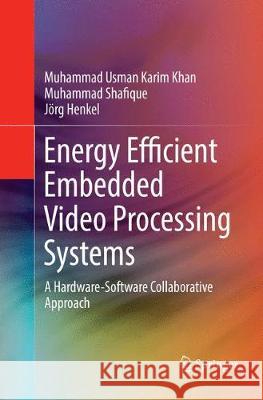Energy Efficient Embedded Video Processing Systems: A Hardware-Software Collaborative Approach » książka
topmenu
Energy Efficient Embedded Video Processing Systems: A Hardware-Software Collaborative Approach
ISBN-13: 9783319870847 / Angielski / Miękka / 2018 / 238 str.
Kategorie:
Kategorie BISAC:
Wydawca:
Springer
Język:
Angielski
ISBN-13:
9783319870847
Rok wydania:
2018
Wydanie:
Softcover Repri
Ilość stron:
238
Oprawa:
Miękka
Wolumenów:
01











